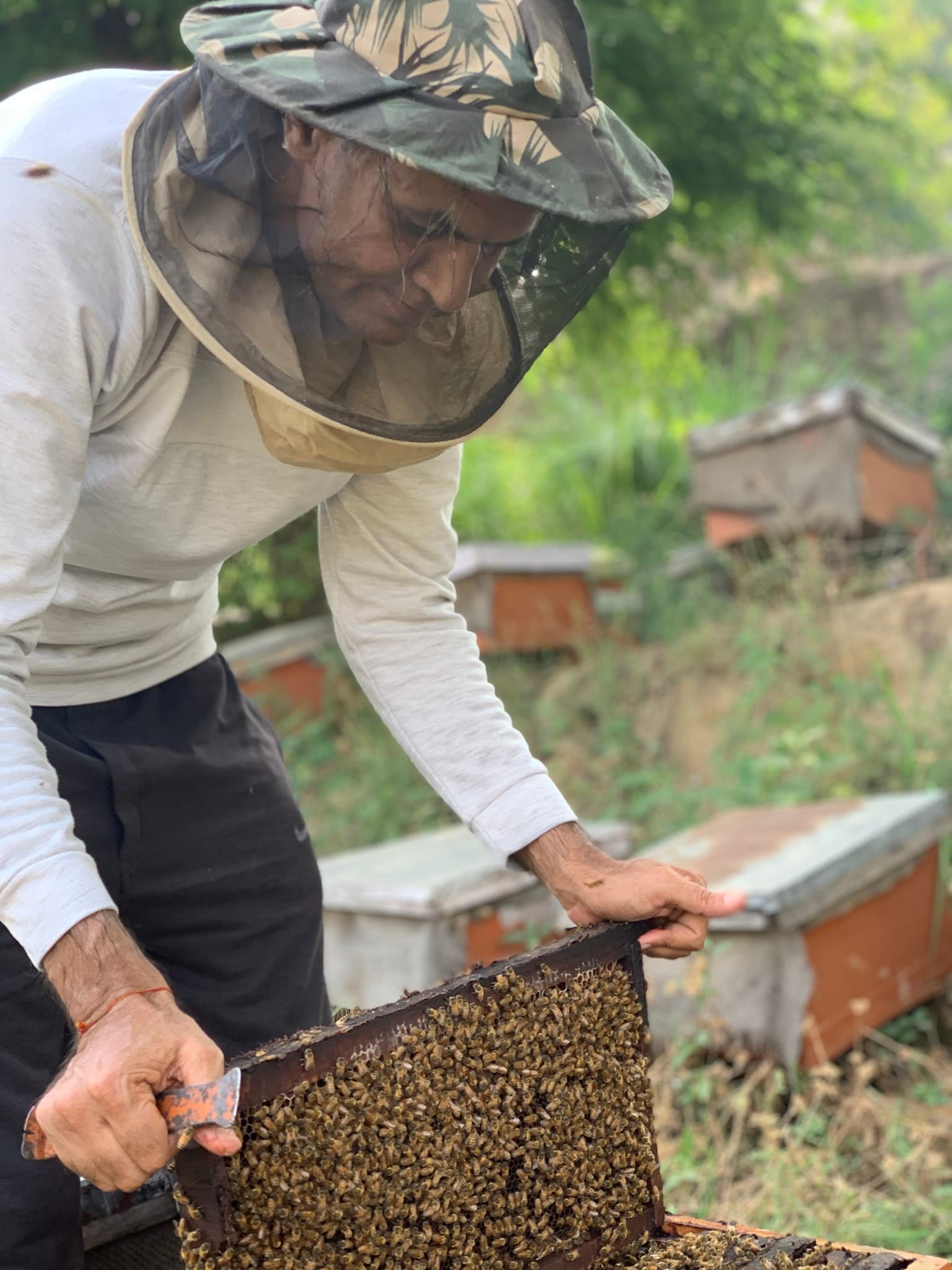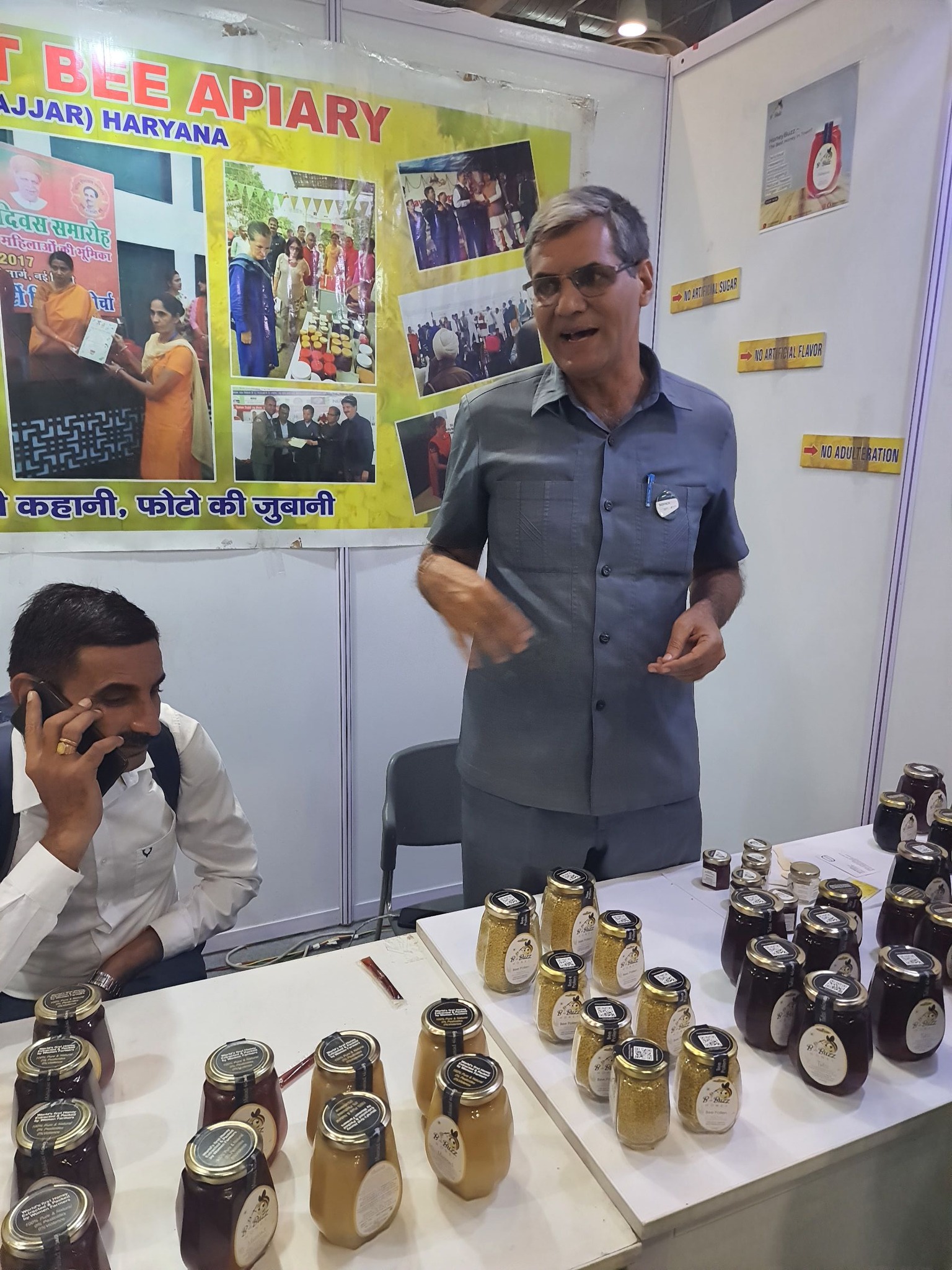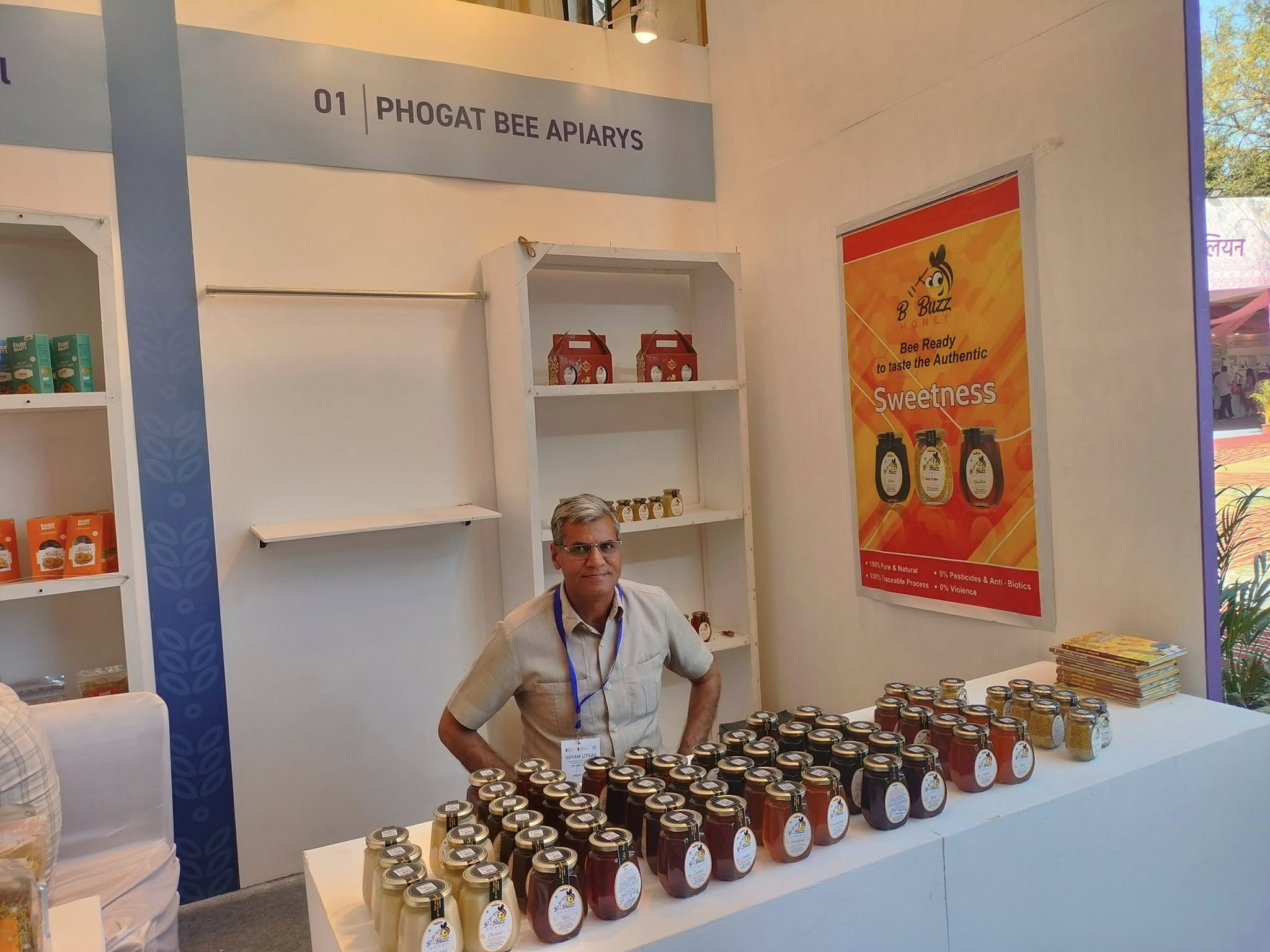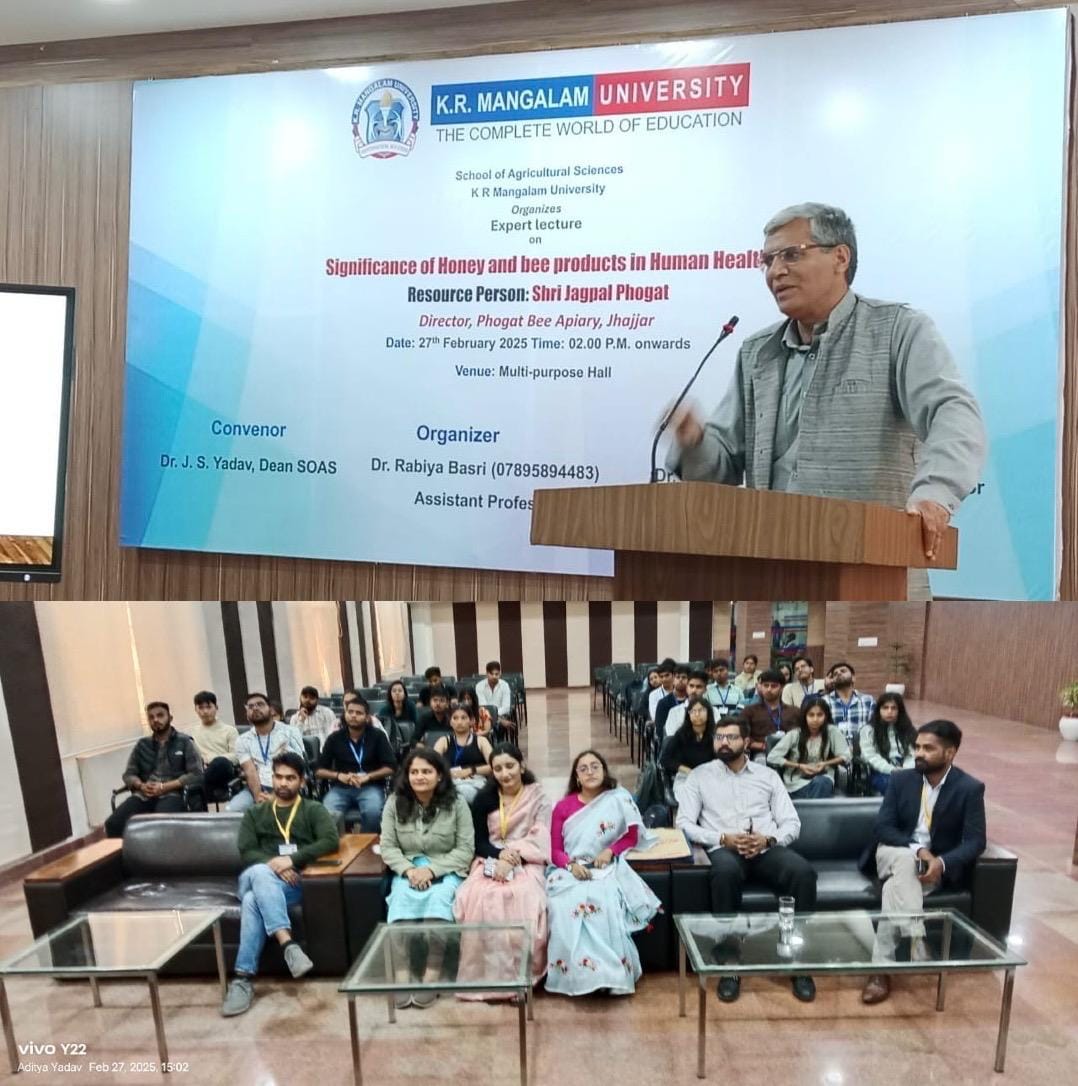Jagpal Singh Phogat’s story is one of vision, persistence, and sweet success. A former teacher from Haryana, Jagpal decided to step away from the blackboard to pursue his passion—beekeeping. Starting with just a few bee boxes, today he has built a ₹2 crore honey business that supplies organic, high-quality honey across India. His journey from classrooms to fields is a testament to how knowledge, when applied smartly, can lead to innovative rural entrepreneurship. Jagpal’s beekeeping venture not only provides livelihoods to dozens of workers but also contributes to the biodiversity of the region. Through constant experimentation, ethical farming, and community involvement, he has positioned himself as a role model for aspiring agri-entrepreneurs. His enterprise focuses on purity, branding, and sustainable practices, making his brand stand out in an otherwise unorganized honey market.
From Classrooms to Colonies: The Shift to Beekeeping

Jagpal inspecting honeycombs during early beekeeping days
After serving as a government teacher for years, Jagpal Singh Phogat began to feel a deeper connection with nature and sustainability. What started as a hobby with two bee boxes eventually became his full-time profession. Encouraged by the high quality of honey and growing demand for natural products, he gradually scaled his operations. He attended workshops, read scientific papers, and even consulted with agriculture departments to learn the nuances of apiculture. Today, he manages hundreds of colonies across Haryana and nearby regions.
Scaling the Sweet Venture: Branding & Market Reach

Honey jars being packaged at Jagpal’s processing unit
Jagpal understood early that simply producing honey wasn’t enough — branding was essential. He launched his own label, focused on purity, and developed strong quality control protocols. By leveraging local markets, organic fairs, and online platforms, he expanded his customer base far beyond Haryana. His products are now sold in premium outlets and to clients seeking natural, chemical-free honey. His story highlights the importance of packaging, certification, and customer trust in scaling an agricultural venture.
Community Empowerment Through Beekeeping

Community Empowerment Through Beekeeping
Beyond profits, Jagpal’s venture is empowering rural youth and women by providing employment and training in ethical beekeeping. He actively trains villagers on hive management, honey extraction, and pollination benefits. These practices not only generate local income but also promote ecological balance. Jagpal ensures that women in nearby villages receive equal opportunities to participate in packaging, processing, and branding activities, making it a socially inclusive enterprise.
Challenges, Innovations & Future Plans

Jagpal sharing his beekeeping model at a local seminar
Like every entrepreneur, Jagpal faced challenges — climate change, pesticide use, and lack of awareness about pure honey being key hurdles. To address these, he introduced mobile beekeeping units and partnered with farmers to place hives in pesticide-free zones. He’s also exploring international markets and aims to set up a training institute for youth in agri-entrepreneurship. With innovation at its core, his journey is only beginning.
A Model of Rural Innovation and Impact
Jagpal Singh Phogat’s transformation from a teacher to a ₹2 crore beekeeper proves that passion, when combined with planning and purpose, can create powerful change. His sustainable honey business is an inspiring blend of economic growth, environmental care, and community development.


